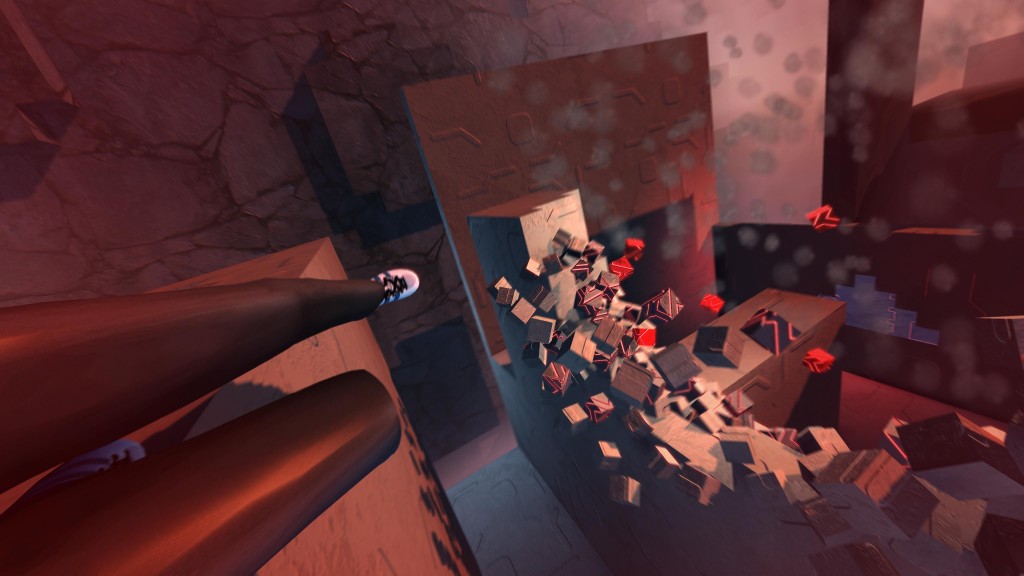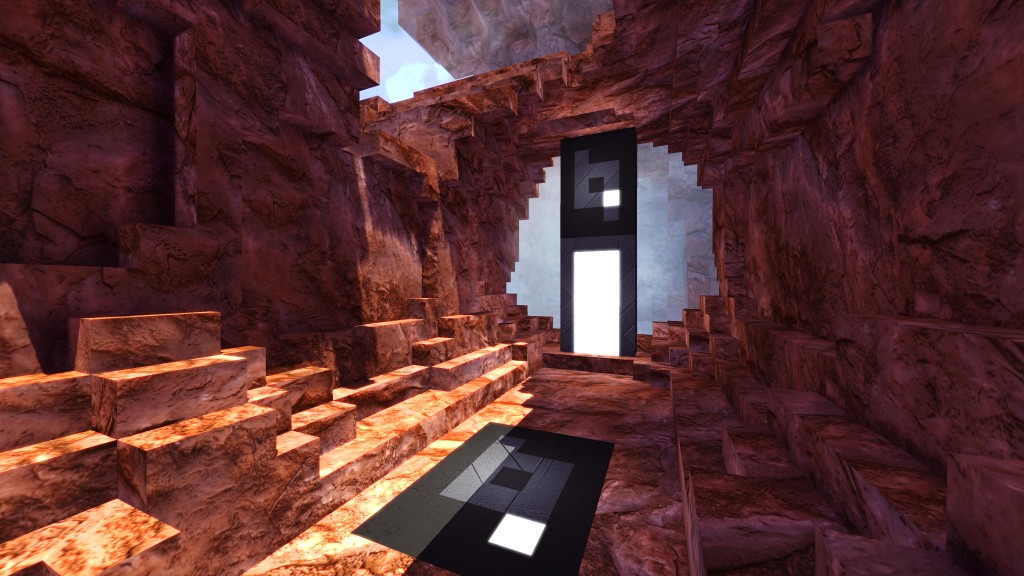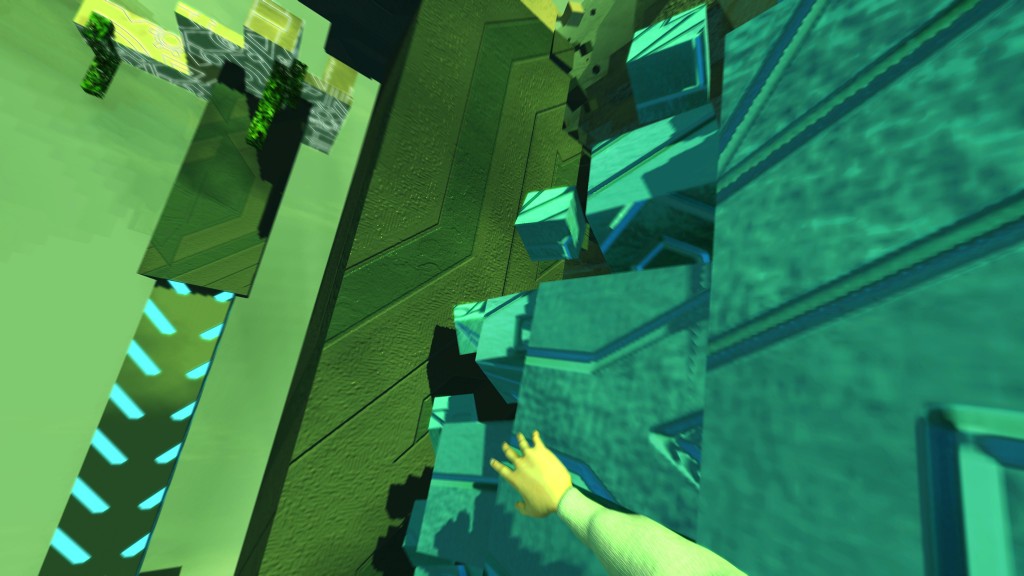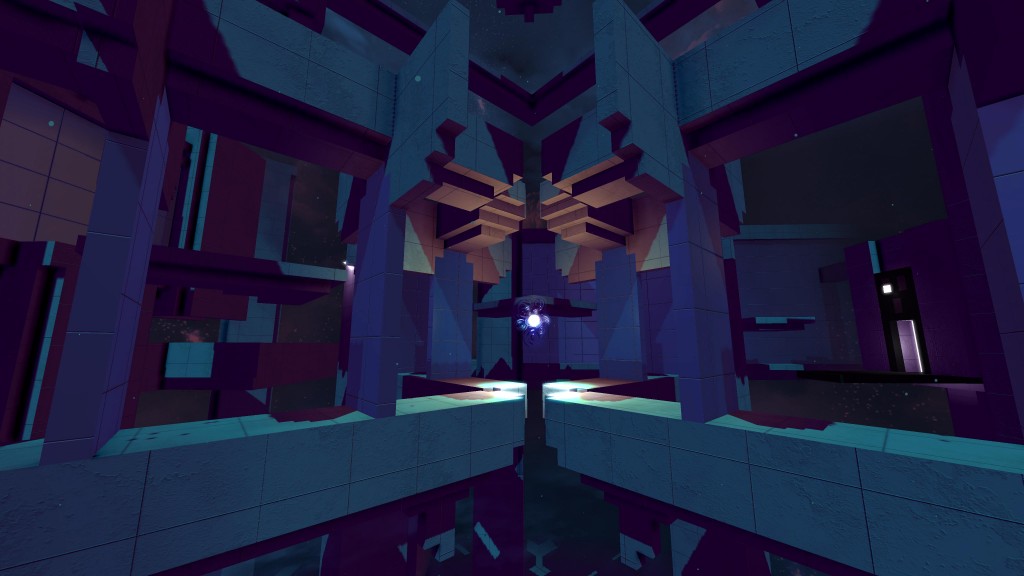
Over the years, I have become quite adept at navigating a 3D space. I can remember a time when I struggled lining up jumps, or assessing the width of a gap that I needed to get over. I can recall getting endlessly lost and turned around as I learned to position a game camera. I even have memories of when I was learning the limitations of this type of movement, learning where I could and couldn’t go and what types of places in a given level I could reach. Within a few hours of playing Lemma, my preconceived notions were shattered, and I felt like I was learning these techniques all over again. The way the game approaches freerunning and platforming are new and exciting, and I was constantly surprised at all the things I could do.
The premise and control scheme of Lemma are both incredibly simple. You awaken in a dream-like world and need to use parkour to find your way out. The only controls you need are the analog sticks and the left and right triggers (a controller is definitely the recommended way to play this game). You move with the stick and clicking the stick in makes you execute a dive roll, while the triggers act as your jumping and grappling actions. By combining these few buttons, you are quickly wall running, flipping, jumping and rolling your way through obstacles while soaring past each level.
What really makes Lemma special, though, is the twist on this formula introduced about a quarter of the way into the game. Right as you begin to feel really comfortable with the controls, you learn that you can “create” platforms from nothing by rolling and wall running. This means that if a gap looks too far to cross, then just run at it full speed and roll off the edge. As you do this, a new platform will be created to support you, and then you simply press the jump button as you come out of the dive. This simple maneuver will get you that extra five to ten feet you need.

Wall running works similarly, in that if you jump at an angle against a wall and press the grapple button, you begin to run along the wall until you get to the edge. If the wall suddenly ends but you still keep the button pressed, you will keep running as you “create” an extension of the wall at your fingertips. These mechanics are deceptively simple when first presented. In fact, when I reached that point in the game I don’t even remember being overtly stunned, but the ways in which they change the basics of the platforming can not be understated.
Shortly after you learn these abilities, Lemma becomes incredibly frustrating. The levels begin to open up, and the platforming begins to feel absolutely impossible. Walls that you need to jump between seem ridiculously far apart, and gaps you have to jump widen to the point of absurdity. This roadblock requires patience, though, because as your new abilities to create freerunning space begin to show their true depth, you begin to learn that a whole new set of platforming ideas are now possible.
It isn’t long, then, until you’re flying through levels without conscious thought. A new area which at first glance seems impassable suddenly begins to reveal locations where you can chain together jumps and grapples. When both the controls and the new mechanics come together, you begin to feel unstoppable. The fact that Lemma can elicit this feeling with only movement is a triumph.

This isn’t to say that Lemma is without fault, as there are a few keys areas in which it misses the mark. The largest of these is in the design of the enemies that are sprinkled throughout the levels to make things difficult. Most of these enemies are of the variety that if they see you they chase you, and then they instantly kill you. They aren’t particularly interesting, and more than that, their only real purpose seems to be to force you to just keep moving at a breakneck pace without slowing down to think about your next jumps. I found this disappointing when contrasted to the sections of Lemma when I was allowed to assess a challenge and determine the path I wanted to take to the goal. The free moments were really fun, but the levels that had me dodging enemies were unbelievably tedious.
The story of Lemma isn’t blazing new trails either. It is mainly told through text messages you get on a phone, along with notes that can be picked up throughout the world. These in game moments provide context for what you’re doing, and there is even an element of “moral choice” sprinkled into the plot, but none of the narrative hooks held my interest long. Luckily the gameplay more than makes up for this shortcoming.
Lemma is absolutely worth experiencing for the platforming in the main story alone. To supplement this, however, there are a few other game modes packaged in. The first of these are the challenge levels, where the goal is simply speed. In these levels, you are given a destination and you just need to find your way there as quickly as possible, and there is a full online leaderboard system to encourage faster and faster times. These levels are a fun diversion from the main game, and they provide an interesting look at how to best use the platforming abilities that you are given most efficiently.

In addition to these challenge levels, one of the things about Lemma that has me most excited is its level creator. The game ships with a full level creation system in place, and it is powerful. The tools feel like they are geared more toward a developer than a consumer, but those willing to devote the time and effort should find that anything experienced in the main game or in the challenge levels could be recreated. I am so excited for the levels that will inevitably be created, because Lemma features a full infrastructure for downloading and playing community “challenge levels,” each with their own unique leaderboards as well.
Lemma is something different, and for that I appreciate it. I have never seen the mechanics it employs used in any other game, and these mechanics caused me to reexamine a fundamental aspect of how modern video games work. I think Lemma holds its own against much larger games made by much larger teams, like its obvious inspiration Mirror’s Edge. The platforming is so good, in fact, that the only points when I found Lemma to be a chore were those sections when it tried to “gamify” itself too much. (Like guns in the aforementioned Mirror’s Edge, anyone?) I hope this game gains traction and finds a devoted community, because it has the depth to keep people jumping and climbing for a long time.
Pros: Innovate new platforming mechanics, challenge levels provide replayability
Cons: Frustrating enemy types, lackluster story



















